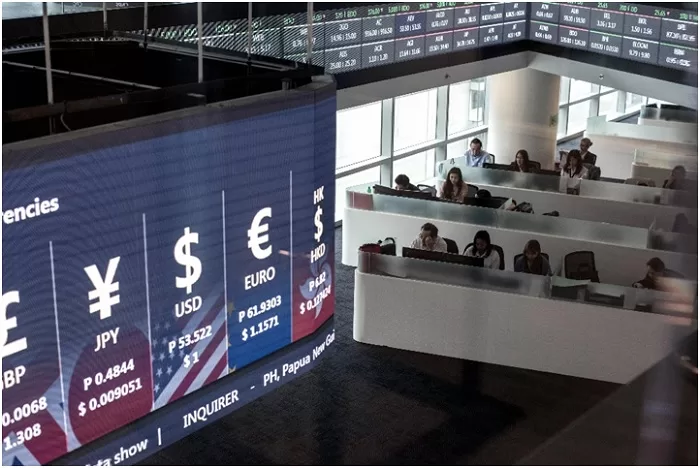Finance
Beginners Guide – Forex vs. Stocks

Forex and stocks are popular financial markets. Recent statistics have shown that about 9.6 million people actively trade online, which amounts to approximately 1 in every 780. While these two markets share undeniable similarities, stocks and forex are very different markets, each with unique offerings and varying pros and cons. Whether experienced or novice, all traders need to understand the fundamental differences between forex and stock markets. Doing such will enable one to determine which market works best for them in order to maximize their returns. Overall, both markets are extremely profitable, and grasping how to trade each one will greatly expand one’s personal knowledge within the world of trading. Below, please find important information about forex versus stocks.
What Exactly Are the Forex and Stock Markets?

First of all, the stock market is a type of financial market where investments of stocks or shares of a company are traded. Typically, companies will list how many shares an investor can purchase either publicly or privately. Publicly traded companies are traded on a stock exchange, such as the New York Stock Exchange, and sometimes through indices such as the Nasdaq. Overall, companies do this in order to raise money for expansion.
The price of a stock is primarily affected by its availability, determined by supply and demand factors. Overall, the shares or stocks of companies are traded to gain profit or liquidate the assets of their investors.
Opposingly, the foreign exchange market (also known as forex or FX) is a financial trading market where global currencies are traded against one another by pairs. It is generally considered one of the most fluid and growing markets of the modern era, primarily due to the high demand for foreign currency exchange worldwide. One of the main traits that separate this market from others is the fact that it is based on a decentralized system. This means that it is traded over the counter via a multitude of computerized networks across the world. Therefore, the forex market is accessible almost always, 24 hours a day, five days a week. To be profitable in this market, one must pay attention to forex signals and market trends to determine the most opportune moments of when to buy and sell assets.
Distinctions Between the Stock and Forex Markets

Since we have established a foundation by defining each of these markets, we can now expand on their five main differences.
1. Focus
First, each of these markets varies on their market focus. A narrow market focus is seen mainly on the forex market as there is only a shortlist of major currency pairs that are typically traded and monitored. In contrast, the stock market offers a multitude of potential publicly traded companies, stocks, and indices, allowing for a more expansive focus. This requires a greater knowledge of the marketplace in order to minimize possible losses.
2. Hours
The forex market is much more accessible than the stock market. This is because one can trade any time of the day on the forex market as transactions are performed online via a brokerage’s trading platform. Conversely, stock market traders are limited to each country’s stock exchange across different territories and time zones.
3. Volume
One of the most poignant differences between forex and stock markets is the sheer volume or size. The forex market volume dwarfs all the world’s stock markets combined, which average roughly daily volumes of $5 trillion and $200 billion, respectively. The forex market’s rapid growth potential is namely because traders of it can buy and sell currency pairs via electronic platforms constantly.
4. Commissions
A commission is typically defined as a charge for services provided. In the world of financial trading, it is an amount or percentage determined by a broker or investment advisor for having provided investment advice or handling transactions for a client. Many forex brokers rely on swaps and other fees as commissions. Some, however, do not charge commissions as they rely on the spreads of trades. Profits for a brokerage garnered this way are based on the difference between the bid and ask price of a trade. This, however, is also contingent upon other factors such as the lot size, type of asset, and whether the spread is fixed or variable. On the other hand, stocks or equities brokers charge both spreads and commissions.
5. Liquidity
Finally, liquidity is defined as how easily an asset can be converted to cash without affecting its price. Typically, markets exhibiting high trade volumes also have higher liquidity. Therefore, forex markets tend to offer low expenses and tighter spreads. Alternatively, the stock market rarely offers low-volume stocks simply because they cannot be bought or sold quickly and easily. If they did, it might result in high risks and potential capital loss.
Trading Style Can Determine Which Market to Use

Understanding one’s trading style will make choosing between these two markets easier. Generally, there are three main types of styles: short, medium, and long.
1. Short-Term
A short-term trading style is one where transactions are completed (i.e., opened and closed) within a few minutes to hours, focusing primarily on small movements with high leverage. It requires a discerning eye on whether a trade is moving in a profitable or losing direction. Additionally, it requires one to invest a large amount of capital in order to increase their leverage. Therefore, it is seen in both forex and stock market trading. The former requires a clear grasp of stock market trends, patterns, cycles, and moving averages. The latter sees it in short, less than 24-hour trades, using candlestick or bar signals for assistance. In forex, it also requires multiple opening positions or even accounts to increase leverage.
2. Medium-Term
Medium-term trading is when positions are held for a few days or weeks. They rely heavily on technical analysis and are based on lower capital amounts because leverage only boosts profits. For the most part, these types of traders than to stick to stock trading as the market sees more fluctuations over a greater period. However, some also engage in forex trading by holding their FX accounts up to 72 hours and employing various forex trading strategies.
3. Long-Term
Finally, long-term traders open or close their positions after a few months or years based on a long list of factors. This type of trading style is great for those seeking long-term profits yet willing to invest significant capital due to the markets’ extended volatility. Generally, it is considered the safest trading method as the risks involved are much lower.
To conclude, the question of which market to enter, forex or stocks, is on many traders’ minds. This article covered basic topics as to each market’s definition, differences between them, and how to determine which market is suitable based on one’s trading style. Another thing to also consider is understanding that, ultimately, there is no wrong choice. One must find which market suits their needs and goals based on what each market provides, how they wish to handle their trades, analyze losses or gains, and their strategy. Overall, one must adequately educate themselves on each market before making such a decision. We provide users with a comprehensive experience that covers the larger financial markets in the world through our educational courses.




















































